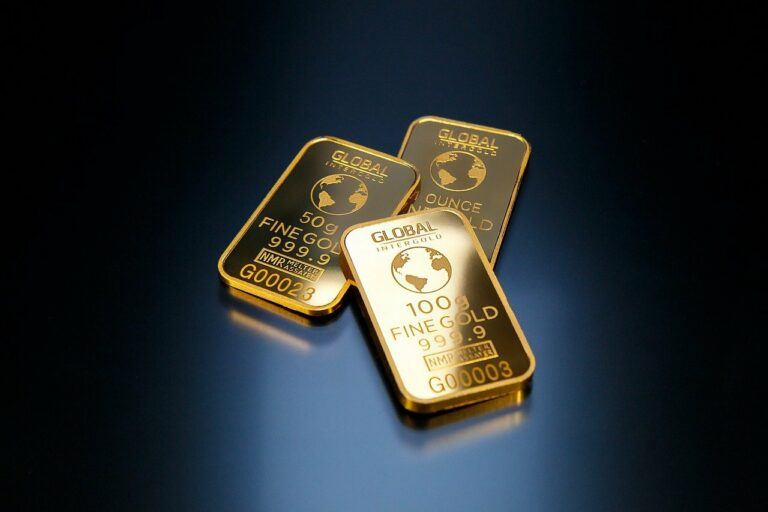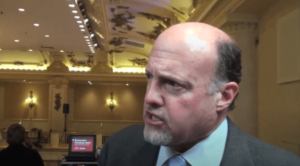
In the world of finance and investment, gold has long been revered as a symbol of wealth and a hedge against economic uncertainty. Recent activities by central banks around the globe underscore the precious metal’s enduring appeal and strategic importance. Krishan Gopaul, a senior research analyst at the World Gold Council (WGC), provides invaluable insights into this trend, drawing from his extensive background in investment and market data analysis.
The World Gold Council’s Mission
Established in 1987 and headquartered in London, the World Gold Council serves as a market development organization for the gold industry. Its mission is to stimulate and sustain demand for gold across various sectors, including investment, jewelry, and technology. Through research and promotion, the WGC advocates for gold as an essential asset class, offering insights into its multifaceted roles in the global economy.
Central Banks’ Bullish Stance on Gold
Recent data highlights a significant trend: central banks are increasingly turning to gold, bolstering their reserves as a strategic move to diversify assets and strengthen financial security.
Notably, the People’s Bank of China has been on a gold-buying spree, with its official gold reserves rising by 10 tonnes in January alone — marking the 15th consecutive month of additions. This brings China’s total gold holdings to a staggering 2,245 tonnes, nearly 300 tonnes higher than at the end of October 2022.
However, it’s not just China that’s bullish on gold. The Central Bank of Iraq, buoyed by higher oil prices, is also expanding its gold reserves. A recent purchase of nearly 2.3 tons of bullion at an average price of $2,037 per ounce has brought Iraq’s total holdings to 145 tons. Plans are underway for further acquisitions in 2024, aiming to reach a record level of gold reserves.
<!–
–> <!–
–>
Similarly, the Central Bank of Turkey and the Reserve Bank of India have been active buyers. Turkey’s official gold reserves rose by almost 12 tonnes in January, bringing the total to 552 tonnes — just shy of the all-time high of 587 tonnes. Meanwhile, India added nearly 9 tonnes to its reserves in the same month, the first monthly addition since October, with total reserves now at 812 tonnes.
Contrasting Fortunes: ETFs vs. Central Banks
While central banks are bolstering their gold reserves, gold Exchange-Traded Funds (ETFs) have faced challenges. January saw global net outflows totaling US$2.8 billion (approximately 51 tonnes) from gold ETFs, marking the eighth consecutive month of outflows. This resulted in a total Assets Under Management (AUM) decline to US$210 billion, a 2% decrease month-over-month.
Peter Schiff Weighs in on Gold’s Record Streak Amid Investor Skepticism
On February 10, 2024, amidst a remarkable period for the gold market, Peter Schiff shed light on an intriguing contrast between gold’s valuation and investor sentiment. Gold had just extended its record streak to 41 consecutive trading days with the spot price steadfastly above $2,000.
However, despite this historic performance, Schiff noted a palpable weakness in investor sentiment, as evidenced by a nearly 4% decline in mining stocks over the preceding week. By February 13, with the market having been open for another trading day since Schiff’s observation, the streak has impressively reached 42 days, further solidifying gold’s strong market position.
Featured Image via Pixabay
- SEO Powered Content & PR Distribution. Get Amplified Today.
- PlatoData.Network Vertical Generative Ai. Empower Yourself. Access Here.
- PlatoAiStream. Web3 Intelligence. Knowledge Amplified. Access Here.
- PlatoESG. Carbon, CleanTech, Energy, Environment, Solar, Waste Management. Access Here.
- PlatoHealth. Biotech and Clinical Trials Intelligence. Access Here.
- Source: https://www.cryptoglobe.com/latest/2024/02/central-banks-growing-appetite-drives-gold-streak-42-days-above-2000-spot-price/
- :has
- :is
- :not
- :where
- 000
- 10
- 12
- 13
- 15th
- 2%
- 2022
- 2023
- 2024
- 300
- 41
- 51
- 7
- 8
- 9
- a
- above
- acquisitions
- across
- active
- activities
- add
- added
- addition
- additions
- Ads
- advocates
- against
- Aiming
- All
- almost
- alone
- also
- Amid
- amidst
- an
- analysis
- analyst
- and
- Another
- appeal
- approximately
- ARE
- around
- AS
- asset
- asset class
- Assets
- At
- aum
- average
- back
- background
- Bank
- Bank of China
- Bank of India
- Banks
- been
- between
- Billion
- Bloomberg
- bolstering
- Bringing
- Brings
- brought
- bullion
- Bullish
- buyers
- Buying
- by
- CB
- central
- Central Bank
- Central Bank of Turkey
- Central Banks
- challenges
- China
- Chinas
- class
- consecutive
- continuing
- contrast
- Council
- CryptoGlobe
- data
- data analysis
- day
- Days
- Decline
- decrease
- Demand
- Despite
- Development
- diversify
- drawing
- during
- Economic
- economic uncertainty
- economy
- Eighth
- end
- enduring
- essential
- ETFs
- EVER
- evidenced
- exceeds
- exchange-traded
- exchange-traded funds
- expanding
- extended
- extensive
- extremely
- faced
- Falling
- February
- finance
- financial
- financial security
- First
- For
- fortunes
- from
- funds
- further
- Global
- Global economy
- globe
- Gold
- had
- Have
- having
- headquartered
- hedge
- Held
- High
- higher
- highlights
- his
- historic
- Holdings
- HTTPS
- image
- importance
- in
- Including
- increasingly
- india
- industry
- insights
- International
- into
- intriguing
- invaluable
- investment
- investor
- investor sentiment
- iraq
- IT
- ITS
- January
- jewelry
- jpg
- just
- Level
- light
- London
- Long
- maintained
- management
- Market
- Market Data
- marking
- Meanwhile
- Mining
- Mission
- Month
- monthly
- more
- move
- multifaceted
- Near
- nearly
- net
- noted
- now
- number
- observation
- october
- of
- off
- offering
- official
- Oil
- on
- open
- organization
- outflows
- over
- Pace
- palpable
- People
- people’s
- People’s Bank Of China
- per
- performance
- period
- Peter
- Peter Schiff
- plans
- plato
- Plato Data Intelligence
- PlatoData
- position
- preceding
- Precious
- price
- Prices
- Prior
- promotion
- provides
- published
- purchase
- reach
- reached
- recent
- record
- remains
- remarkable
- report
- research
- Reserve
- reserve bank
- Reserve Bank of India
- reserves
- rising
- roles
- ROSE
- s
- same
- saw
- Schiff
- Screen
- screens
- Sectors
- security
- senior
- sentiment
- serves
- shed
- Shows
- shy
- significant
- since
- sizes
- solidifying
- Spot
- spree
- staggering
- stance
- stand
- States
- stimulate
- Stocks
- Strategic
- streak
- Strengthen
- strong
- Supported
- symbol
- Technology
- than
- that
- The
- The Reserve Bank of India
- the world
- their
- this
- Through
- time
- to
- tons
- Total
- totaling
- traded
- Trading
- treasury
- Trend
- true
- Turkey
- Turning
- Uncertainty
- under
- underscore
- Underway
- use
- Valuation
- various
- via
- vs
- weak
- weakness
- Wealth
- week
- WGC
- with
- world
- World Gold Council
- yet
- zephyrnet













